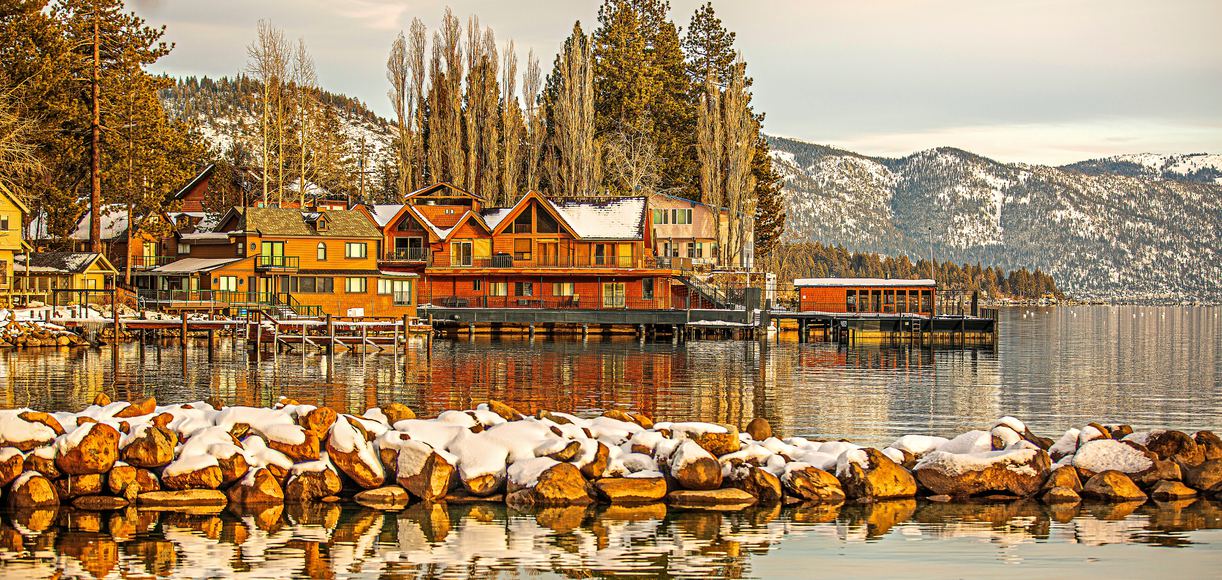The vacation rental market is expanding rapidly as more people look for that home-away-from-home where they can spend their holiday. In reality, holiday rental income reached $49.541 billion in 2020.
Travelers nowadays appreciate the option to go away from the city for a quiet and serene vacation. They want to do something different and get a taste of the snug atmosphere that cabins are known for. Cabins are many different types of vacation rental houses available to customers.
Cabins are a great way for people to get away from the city, and they’re also a great business opportunity for you!
How to Begin a Cabin Rental Company
A lot of research and planning goes into beginning a business, and having a cabin rental business plan is one of those things. Before getting your cabin up and running, make sure you have a clear plan in place and have calculated all of the costs, investments, and marketing tactics.
If you’re thinking about beginning a cabin rental business, here are ten things to consider:
1. The Geographical Location
First and foremost, you must determine where you wish to invest. Mountains, woods, on a lake, or in a residential neighborhood are all common cabin sites. It’s also crucial to consider how you want to invest in the cabin:
- Is it an undeveloped parcel of land on which you plan to build?
- Is it an old cabin in need of repair?
- Is the cabin fit for habitation?
Is there a big demand for rental properties in your preferred location? Would it, for example, be near a popular ski resort? Or near a spa or yoga retreat? Is it just in a secluded location where guests can enjoy the perfect getaway?
The easiest place to begin is to look for vacation rentals offered in the region where you want to buy. Look at listing sites like Airbnb or Booking.com for ideas. Then see what kinds of homes are available and whether cabins are a choice, and how popular they are.
You can also use AirDNA, an analytical tool that provides vacation rental data based on location.
You can, of course, buy a cabin in a remote location or a long distance from the next town. That is the whole goal of a peaceful retreat! All you’ll need is an online marketing strategy in place, such as using social media to promote your cabin and provide it the exposure it needs to attract bookings.
2. Cabins of Various Types
Cabins are available in a variety of sizes and shapes. Tiny houses, treehouses, cottages, log cabins, farmhouses, ranches, lodges, and ski chalets are just a few examples. Take into account the cabin’s design as well. Is it going to be made of wood or stone? Is the cottage going to be rustic or contemporary? Will the style and design of the interior match that of the exterior?
Decide which type of cabin would be best for you as a rental owner and how you’d like to run and maintain it.
3. Make an investment calculation
Before beginning your cabin rental business strategy and purchasing the actual property, you must first analyze all costs before beginning your cabin rental business strategy and purchasing the actual property. Consider the following options for funding your new business:
- Will you require a loan or a mortgage?
- If yes, what is the maximum monthly loan amount you can afford?
- How much will it cost to renovate the cabin?
- What will the total cost of all the furniture and amenities be?
- What will the cost of cleaning, repairs, and upkeep be?
- Marketing costs and OTA fees
Remember to include in taxes and license fees. It’s also a good idea to budget for any potential problems or unanticipated expenses, such as floods or unexpected repairs.
4. Taxes and licenses
Cabin rentals, like any other business, require a general business license. Before you may function as a cabin rental owner or manager, you must first obtain a license. You may also be required to show documentation that the rental property is not your principal residence. Look at your local government’s website to learn how to obtain a license.
Taxes are an unavoidable element of owning a company. You’ll need to pay rental tax, just like you’ll require a license. When it comes to filing a tax return, cabin owners may deduct a variety of expenses.
Check your state’s regulations and standards, and if possible, consult an attorney to ensure you have all of the necessary paperwork to establish your business.
5. Business Plan for Cabin Rentals
A cabin rental business plan is a comprehensive set of rules, objectives, and frameworks that will aid you in making decisions about your new company’s future.
Developing a good business plan will assist you in identifying risks before you invest, allowing you to estimate the likelihood of your company’s success. The business plan will not only assist you in defining the strategy with which you will operate your firm, but it will also serve as a handy tool to go to time and time again to ensure that you are on the correct track.
It’s a good idea to have a business strategy in place before purchasing the cabin so you can determine whether it’s a good investment and business venture.
6. Market to Your Visitors
Once you’ve chosen a site, you’ll need to figure out how to promote the cabin and who your target market is.
Determine if your cabin will serve as a romantic retreat for couples, a family retreat, or a fitness retreat for fitness and wellness visitors. Of course, you could market the cabin as generic and leave out the details of who it’s for.
Do you have any plans to promote to a global audience? If this is the case, having a multilingual cabin rental website accessible and understandable to non-native English speakers is a smart idea. Another consideration is whether or not your cottage is pet-friendly.
You’ll need to advertise the cabin on the market to get bookings. Consider the various methods you can use to advertise it. Do you want to build your cabin website or use internet travel agencies?
Is this a year-round or seasonal cabin? Decide whether you want a cabin that is only available during the winter and Christmas or if you want it to be open all year.
7. What Kind of Amenities Do You Plan to Provide?
Now that we’ve covered almost everything, there’s only one thing left to discuss: the cabin’s interior. The interior design is a selling point as well as a true experience. After all, it’s where visitors will spend the majority of their time! So, what kinds of amenities do you want in your vacation rental cabin?
A hot bath is one of the few things that allows guests to unwind and rest. If you have the space, nothing matches the experience of relaxing in a hot tub after a day of skiing or hiking in the cold.
Because cabins are linked with staying warm and cozy inside, including a fireplace is a terrific idea. You can even provide them with wood and an ax to cut their wood and add it to the fire.
Adapt your rental to the available activities. If it’s snowing or you’re near a ski resort, for example, bring sleds. It’s something that the whole family, especially the youngsters, will enjoy! If your cottage is near a lake, consider renting a rowing boat for your guests to use for the day.
Consider a nice rural cottage and provide your guests with something to go with it, such as hot chocolate or mulled wine ingredients. You can also give fondue equipment and long forks to melt marshmallows over an open fire. Provide blankets for guests to use in the living room to keep warm, as well as books for a quiet escape.
Make sure to highlight all of the amenities in your listing description and while marketing your cabin so that guests are aware of what you have to offer.
8. Cabin Name
There’s one aspect of launching a vacation rental business that’s frequently overlooked, even though it’s one of the most enjoyable! That is, deciding on a brand name for a cabin rental company. Whether your cabin has a unique name, something related to the location, or something imaginative, it’s entirely up to you.
Your brand will serve as the foundation for your marketing and will assist your cabin in establishing a reputation. After you’ve decided on a name for your cabin, you’ll be able to use it on social media, your website, and all of your OTAs.
9. Showcase Your Photos
Now that you’ve figured out how to market your cabin, it’s time to show off your photos. Make sure your photos are of good quality and that you include as many as possible. You’ll want to include pictures of all the rooms, amenities, the outdoor space, and, of course, the cabin itself.
Consider adding notes to each photo, such as “relax by the toasty fireplace,” “great weekend trip with the family,” or “lots of nearby activities.” Include images of the surrounding environment and adjacent activities, such as hiking trails, lakes, ski slopes, and other sporting or recreational activities.
It’s also a good idea to incorporate images from every four seasons. Guests will know exactly what to expect based on the time of year. If it’s summer and your guests have only seen images of your cabin covered in snow, they won’t know how it appears in the summer.
10. Website & Social Media
A well-designed and professional cabin rental website is an excellent approach to promoting your cabin. You can take charge of everything, including the booking system, accepting online payments, and handling all guest queries and reservations in one spot. Lodgable allows homeowners to simply establish their website without programming skills, and they may choose from a variety of website templates.
In addition, Lodgable offers a channel manager that syncs all of your external vacation rental listings, such as Booking.com, Airbnb, and Vrbo. You won’t have to manually update your calendar because the channel manager will do so for you, keeping it up to date and consistent. You’ll just have to keep track of one calendar, and you’ll never have to worry about double appointments again. A channel manager is especially useful if you’re establishing a cabin rental business and want to list your cabin on multiple sites.
What to Remember
All of these things should be considered when launching a cabin rental business. While it’s a great experience that can pay off, it’s also critical to do your homework, make a plan, and be prepared.
Being your boss has a lot of duties, but it also comes with a lot of benefits. Because it is personal, adjustable, and adaptable, the vacation rental market is unlike any other aspect of the hospitality industry.









